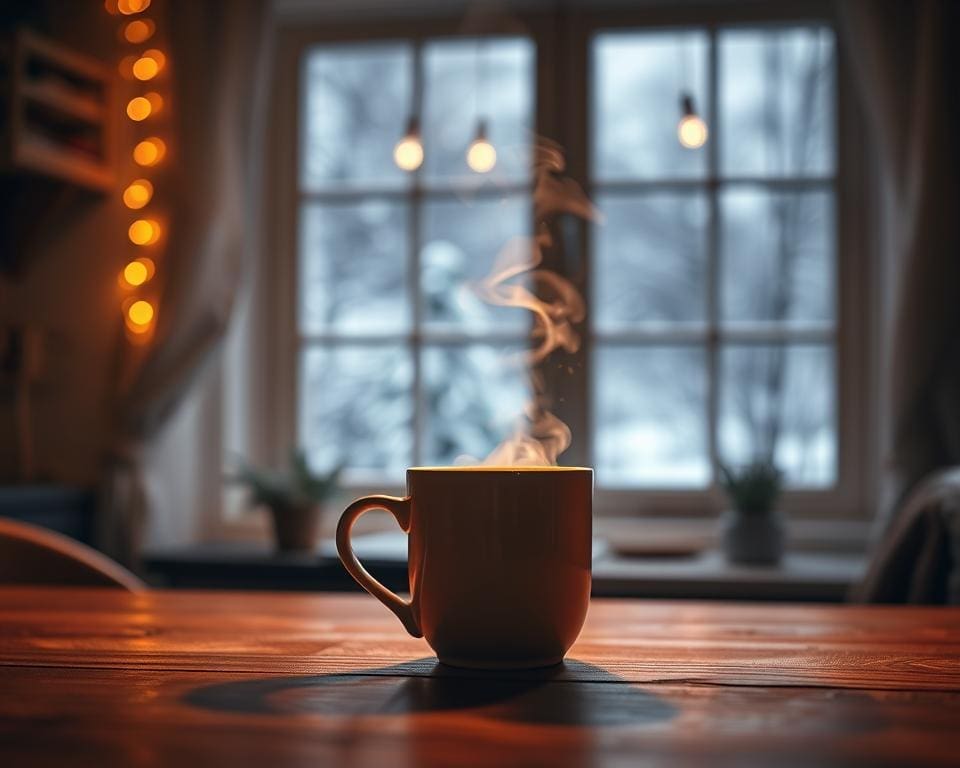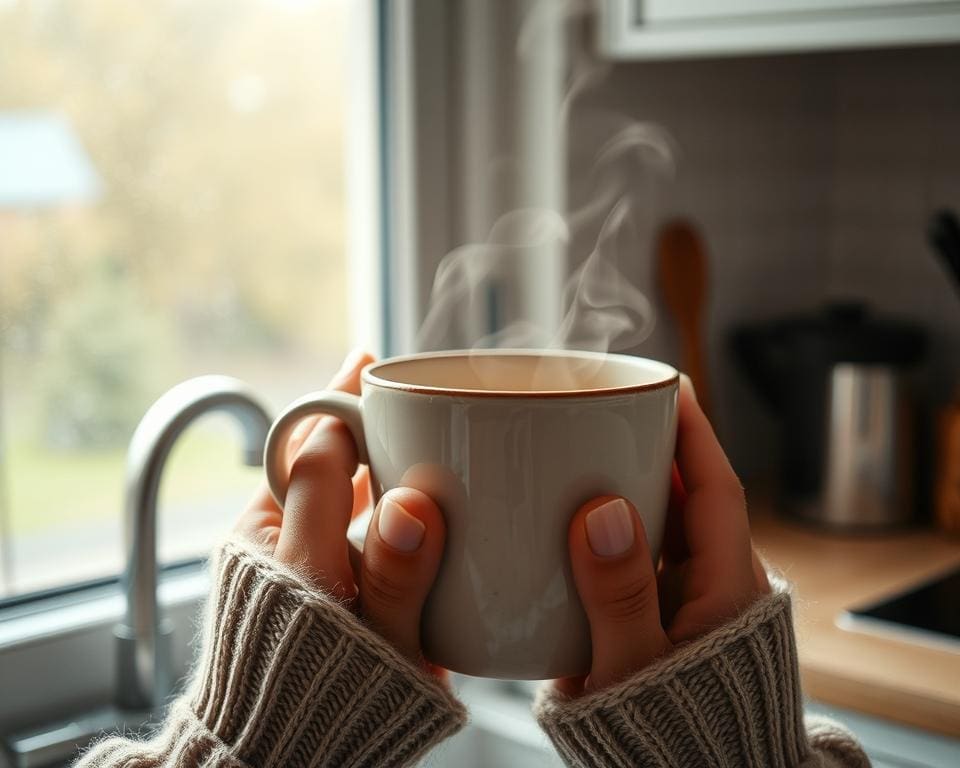There is an undeniable warmth that envelops us when we sip a delicious cup of tea, a fact that begs the question: Why does a warm cuppa feel so comforting? This age-old beverage transcends mere hydration; it embodies a ritual of relaxation and solace in our daily lives. As we cradle the cup, we not only feel its heat but also embrace an intrinsic sense of comfort. Research indicates that these warming sensations play a significant role in enhancing mood and alleviating anxiety, making our cherished moments with tea all the more significant.
Moreover, the cultural rituals surrounding tea consumption add to this emotional response, creating a backdrop of security and familiarity. Whether enjoyed alone or shared with friends, each sip serves as a reminder of life’s simple pleasures, soothing our minds while we indulge in the rich flavours. Thus, a warm cuppa does far more than refresh; it forges connections and comforts us through life’s myriad challenges.
The Science Behind Warmth and Comfort
The science of comfort reveals fascinating insights into how warmth affects human emotions. Warm temperatures possess an intrinsic ability to foster feelings of safety and security. Neuroscience sheds light on this phenomenon, showing that warmth can alleviate stress levels significantly.
Research indicates that exposure to warmth often triggers the release of oxytocin, known as the “love hormone.” This psychological response contributes to enhanced emotional well-being, making individuals feel more connected and relaxed. As such, indulging in a soothing beverage can provide an instant sense of relief and comfort.
Historically, the biological necessity of warmth has been paramount for human survival. Our ancestors depended on warmth for protection against the elements, laying the groundwork for contemporary feelings of comfort associated with hot drinks. Whether it’s a cup of tea or hot cocoa, these beverages embody not just physical warmth but also the emotional solace that comes from nurturing practices.

Why does a warm cuppa feel so comforting?
A warm cuppa has an incredible ability to evoke feelings of comfort and connection. The rituals surrounding tea drinking often intertwine with cherished memories, creating a lasting emotional connection to tea that transcends generations. As a soothing beverage, tea carries the weight of nostalgia, transporting us back to moments shared with family and friends, reinforcing the sense of belonging.
The Emotional Connection to Tea
The emotional connection to tea is significantly shaped by personal experiences. Many individuals find themselves reminiscing when sipping their favourite brews, with certain types of tea linked to specific memories. This personal resonance not only brings comfort but also creates a sense of continuity in life’s journey. Whether it’s a cup enjoyed during a rainy afternoon or tea shared with loved ones on special occasions, these simple acts become treasured tokens of warmth and connection.
Psychological Effects of Drinking Hot Beverages
Research highlights the psychological effects that hot beverages like tea can have on our well-being. Consuming a warm cuppa triggers physical reactions that contribute to feelings of relaxation and comfort. The warmth can reduce cortisol levels, the hormone associated with stress, while stimulating the release of dopamine in the brain. This combination leads to enhanced pleasure and tranquillity, reinforcing the soothing nature of tea and its capacity to elevate moods. In moments of stress, a simple cup of tea embodies both ritual and remedy, affirming its role as a beloved companion in our daily lives.
The Role of Aromas in Creating Coziness
The power of aromas plays a crucial role in how we perceive coziness, especially when it comes to the delightful experience of enjoying a warm cup of tea. The intricate dance between scent and emotion invites us into a world where the soothing fragrance of tea can evoke cherished memories and feelings of comfort.
In the realm of tea fragrance, specific aromas have an undeniable ability to transport us back to comforting moments in our lives. When the rich scents of chamomile, lavender, or spiced chai fill the air, they act as a gentle reminder of warmth and familiarity. The olfactory system is intricately linked to memory, allowing these scents to create an enveloping atmosphere of coziness that is hard to resist.
Research highlights how pleasant scents not only enhance mood but also promote relaxation. The aromas from various herbs and spices found in tea can function almost like a soothing balm for the mind, melting away the stresses of the day. As you brew that cup of tea, take a moment to embrace the delightful scents wafting through the air. They can transform an ordinary ritual into a warming embrace that nurtures both body and soul.
Soothing Rituals: The Act of Brewing
Brewing tea serves as a delightful escape, transforming a simple act into a cherished ritual of mindfulness. This process not only offers a warm drink but also immerses one in a world of relaxation, where every step becomes a meditation.
The rhythmic motions of measuring tea leaves, boiling water, and steeping encourage a sense of presence. Engaging in these repetitive tasks allows individuals to step away from daily stresses, embracing a moment of serenity. Aromatic steam fills the air, enhancing the experience and promoting a feeling of contentment.
Benefits of Mindfulness in Tea Preparation
Mindful brewing tea lays the foundation for profound relaxation. Each cup prepared with intention and care serves as a reminder of the beauty of the moment. Participants can find peace in the process, enjoying the sensory richness that accompanies tea preparation.
- Enhances focus on the present
- Reduces anxiety through soothing actions
- Encourages appreciation for simple pleasures
Participating in these soothing rituals allows one to slow down, promoting both mental clarity and overall well-being. As the tea brews, anticipation builds, effortlessly merging tradition with a calming practice.
Effects of Temperature on Relaxation
Temperature effects play a significant role in our daily pursuit of relaxation. Many find solace in sipping a soothing beverage, especially when it is warm. The act of drinking hot liquids, such as tea, has been linked to enhanced feelings of calmness. This phenomenon is closely tied to physiological responses triggered by warmth.
When sipping a comforting cuppa, the warmth increases blood flow, aiding in the alleviation of muscle tension. As the temperature of the beverage rises, so does the body’s ability to relax. This dual action of warmth and fluid creates a nurturing atmosphere that encourages a state of relaxation.
Moreover, consuming a hot beverage signals to the brain that it is time to unwind. The physiological and psychological mechanisms in play reinforce this message, allowing one to transition into a more tranquil mindset. This connection between temperature and relaxation cannot be overstated, as the very act of holding a warm mug in one’s hands brings about a feeling of comfort, amplifying the soothing experience.
Cultural Significance of Tea in British Society
The cultural significance of tea in British society cannot be overstated. This cherished beverage has woven itself into the fabric of daily life, transcending mere refreshment to become a symbol of comfort and community. Rooted in history, the practice of tea has evolved into various rituals that bring people together, fostering connections among friends, family, and colleagues.
Tea Time Traditions and Their Comforting Nature
Tea time traditions, which took shape in the 19th century, serve as more than just a social activity. These moments provide a welcome pause in a bustling day, offering a chance to slow down, reflect, and indulge in a moment of solace. Iconic tea brands such as Twinings and PG Tips have become synonymous with these customs, reinforcing their role in British culture and enhancing the emotional connection many feel towards tea.
Sharing a cup during tea time cultivates a sense of belonging. As families gather around the table or friends meet for an afternoon catch-up, the soothing act of enjoying a warm beverage reinforces bonds and creates cherished memories. This emphasis on togetherness exemplifies the comforting nature of tea, making it a cornerstone of social engagement in modern British society.
Ultimately, the cultural significance of tea resonates deeply within British society, reminding us that even a simple cup can provide immense comfort and connection, nurturing relationships and enhancing our overall well-being.
Varieties of Tea and Their Unique Comforts
Exploring the world of tea reveals a plethora of varieties of tea, each offering distinct flavours and benefits that cater to individual tastes and comfort needs. From robust black teas to delicate white teas, these options can provide a soothing beverage for any moment of the day.
Herbal teas, such as chamomile and peppermint, gain attention for their unique comforts. Chamomile, known for its calming properties, can be especially helpful in easing stress and promoting restful sleep. Peppermint, on the other hand, serves as a refreshing option, often aiding in digestion and invigorating the senses.
Traditional black and green teas bring their own comforting qualities. Black tea, with its strong flavour, is often savoured during breakfast, creating a warm start to the day. Green tea, renowned for its antioxidants, offers a lighter, refreshing experience while still providing numerous health benefits.
- Chamomile Tea: A calming, caffeine-free choice ideal for relaxation.
- Peppermint Tea: A soothing beverage that aids with digestion and refreshing the mind.
- Black Tea: Bold and energising, often enjoyed with milk and sugar.
- Green Tea: Light and revitalising, packed with antioxidants.
Each of these varieties of tea allows individuals to tailor their tea-drinking experience to suit their preferences, making it easier to find the perfect soothing beverage at different times of the day. The diverse flavours and health benefits associated with various tea options highlight their role in promoting relaxation and overall well-being, offering unique comforts that can enhance daily life.
Incorporating Tea into Daily Relaxation Practices
In today’s fast-paced world, making time for daily relaxation practices can feel like a luxury rather than a necessity. Incorporating tea into your routine, however, can transform this notion into a comforting and practical reality. Simply stepping away from your busy schedule to enjoy a cup of your favourite brew not only provides a welcome break but also enhances your overall well-being. This soothing ritual can serve as an essential moment of self-care, allowing you to unwind and recharge.
To effectively integrate tea into your day, start by scheduling dedicated tea breaks. Whether it’s mid-morning or afternoon, these moments can offer a much-needed respite. Focus on creating a serene environment while enjoying your warm cuppa. Perhaps light a candle or play soft music to elevate the sense of comfort as you sip. Selecting a blend that resonates with your mood, such as chamomile for relaxation or Earl Grey for an uplifting boost, can further enrich the experience of incorporating tea into your daily life.
Moreover, embracing the act of brewing tea can deepen your connection with this beloved beverage. Taking the time to prepare your drink—honouring each step from boiling water to selecting the perfect steeping time—can become a meditative practice in itself. This intentional pause during your day allows you to engage fully in the sensation of warmth and flavour, fostering a sense of tranquillity that enhances your relaxation journey. Thus, by incorporating tea thoughtfully into your daily routine, you invite comfort and serenity into your life.









